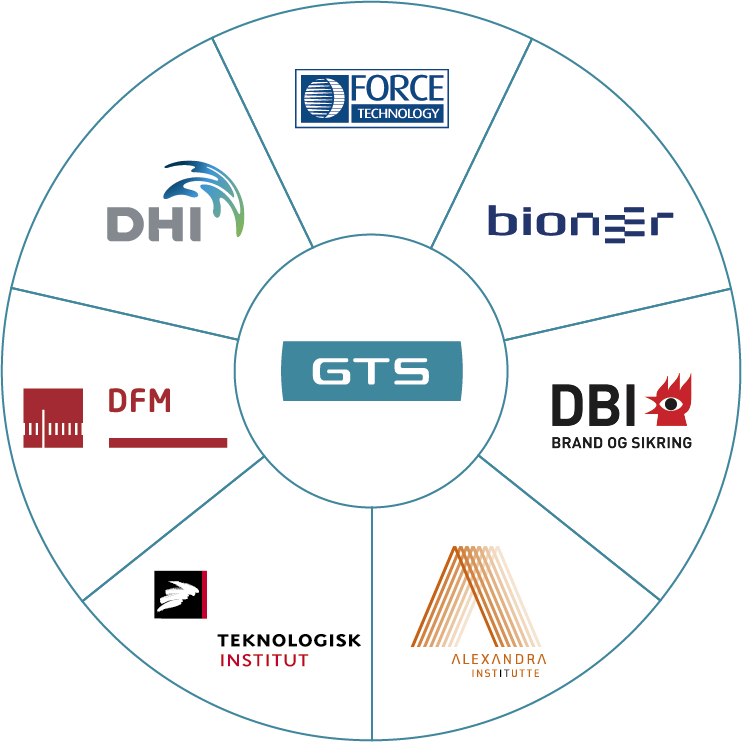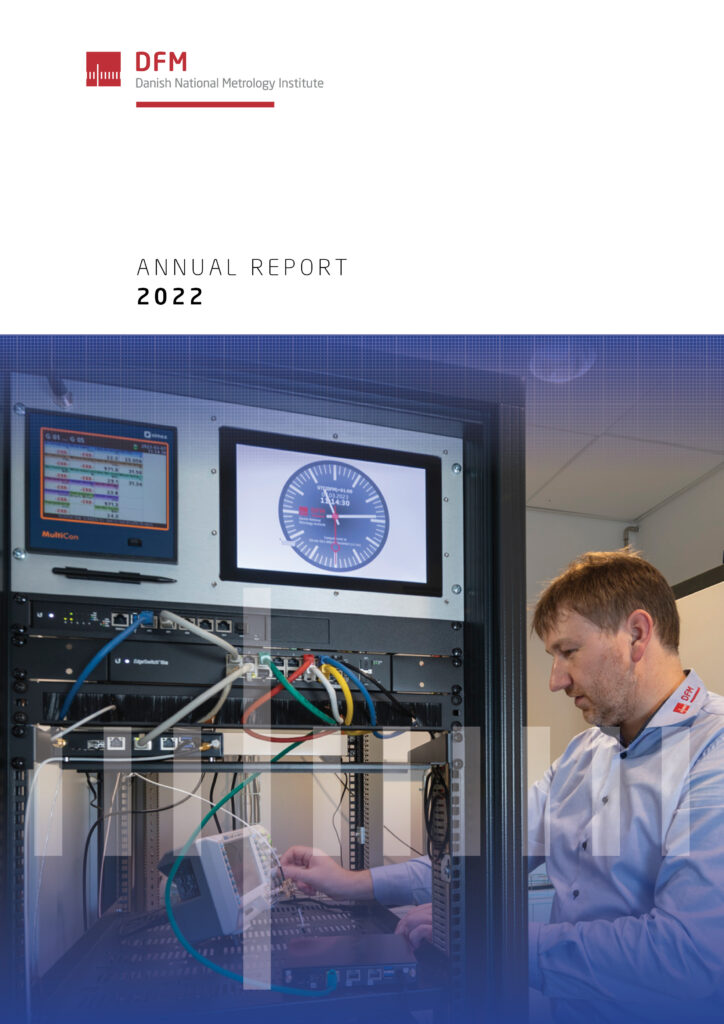About DFM
Danish Fundamental Metrology
DFM is the Danish National Metrology Institute and one of the 7 GTS institutes in Denmark. We possess the highest measurement competence in Denmark within a number of key measurement sizes.
As a National Metrology Institute, our primary activities consist of:
- Construction and maintenance of the Danish metrological infrastructure by realizing and disseminating traceability at the highest level.
- Participation in the global metrology collaboration, eg in the development and utilization of the global SI unit system through research collaboration and knowledge exchange.
- Development of measurement competencies of special importance for Danish companies and Danish authorities.
- Participation in research projects in close collaboration with Danish universities and Danish industry.
DFM provides a wide range of services to private and public companies and authorities in areas related to metrology and accreditation. Every year we offer new and improved services, which are based on research in areas of fundamental metrology that are of particular importance to companies. In addition, companies gain access to traceable measurements and reference materials through the establishment and maintenance of national primary and reference standards. In order to ensure the quality and mutual recognition of calibration and testing performed in Denmark among Denmark’s international trading partners, DFM focuses on cooperation with laboratories, industry and authorities. DFM disseminates knowledge about metrology to companies and authorities, among other things through teaching and consulting services.

DFM as a GTS institute
DFM is one of the 7 GTS institutes in the GTS network. The GTS institutes are commercial companies with a non-profit purpose.
A GTS institute is approved by the Ministry of Education and Research.
In order to be approved, it is a prerequisite that it is a non-profit company that:
- Works in an area of great importance to the Danish business community.
- Has a high professional level.
- Are independent of political and economic interests.
- Has a reassuring financial and organizational basis.
Despite the GTS Institute’s independent and independent company law position, a GTS institute is subject to regulatory requirements for professional evaluations and ongoing financial and legal control. Excess earnings are used exclusively for new research, development and innovation.
The task for the GTS institutes is to build a technological infrastructure of facilities, laboratories and professional competencies that can be used in parallel by many companies. The advantage for small and medium-sized enterprises in particular is that they have easier access to relevant technological knowledge that they can use to develop innovative products and processes. Thus, the GTS institutes function as a technological sharing scheme for the Danish business community.
In short, the GTS institutes fulfill their role in the innovation system by:
- To follow technology development at home and abroad closely – and to bring home and offer relevant technologies to the business community.
- To develop new technological knowledge. This is often done in close collaboration with Danish and international universities and research institutions. This contributes to a high professional level among the GTS employees, who are thus equipped to solve the technological challenges that the individual company faces in practice.
- Continuously tailoring technological services targeted at the broad group of companies.
- To spread technological knowledge to companies throughout Denmark.
In 2018, the GTS institutes had a commercial collaboration with 16,663 private, Danish corporate customers and 1,072 public customers. In addition, they collaborated with up to 2,000 companies in the 666 research and development projects.
The close interaction with the Danish business community means that the GTS institutes have their finger on the pulse in relation to what the business community demands. It is a good foundation to stand on in the ongoing work to build the technological infrastructure and technological solutions of the future for the benefit of the many companies.
Annual report 2022
Every year, DFM publishes an annual report that contains a detailed account and an overview of DFM’s activities.
| KEY FIGURES 2022 | MIO DKK |
| Total revenue | 46,7 |
| Commercial revenue | 9,7 |
| Project revenue | 8,9 |
| Goverment funding | 28,0 |
| PROJECTS 2022 | NUMBER |
| Number of collaborative projects | 31 |
| – thereof innovation consortia | 0 |
| – thereof international projects | 28 |
| STAFF 2022 | NUMBER |
| Dr. og Ph.D. | 26 |
| MSc | 1 |
| Other technical staff | 3 |
| Administrative staff | 5 |
| Average number of staff | 35 |
DFM’s approach to diversity, equality and inclusion
DFM is a place for those who can and want to – or those with the will and skill. The efforts within diversity, equality and inclusion at DFM are organized with a design that ensures a close coordination of efforts and learning. The policy is thus in line with the EU Horizon requirement for an equality plan (GEP) at company level. You can read our entire policy here.

